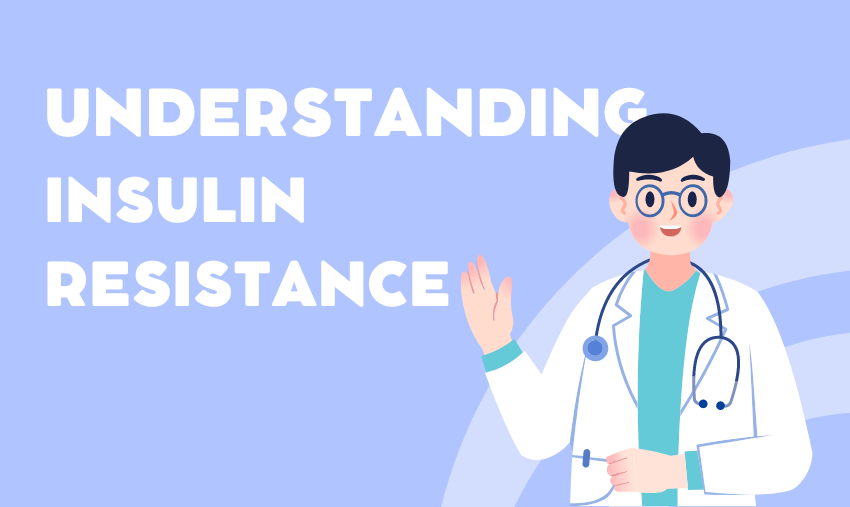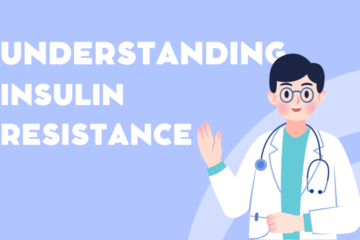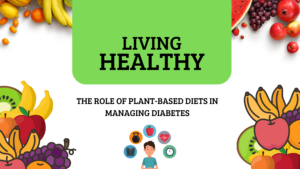Insulin resistance is a key factor in the development and progression of type 2 diabetes. It occurs when the body’s cells become less responsive to the effects of insulin, a hormone responsible for regulating blood sugar levels. This condition can have significant implications for overall health and well-being. In this comprehensive guide, we will take a deep dive into understanding insulin resistance, exploring its causes, mechanisms, and implications. By gaining a thorough understanding of insulin resistance, we can make informed decisions to manage and potentially reverse this condition.
I. What is Insulin Resistance?
Insulin resistance refers to the reduced ability of cells to respond to the actions of insulin. Insulin plays a crucial role in regulating blood sugar levels by facilitating the uptake of glucose from the bloodstream into cells. When cells become resistant to insulin, glucose remains in the bloodstream, leading to elevated blood sugar levels. This condition is a hallmark of type 2 diabetes and prediabetes.
II. Causes of Insulin Resistance
A. Obesity and Body Fat Distribution: Excess body weight, particularly visceral fat (fat around the organs), is strongly associated with insulin resistance. Adipose tissue, or fat cells, release inflammatory substances that interfere with insulin signaling, contributing to insulin resistance.
B. Sedentary Lifestyle: Lack of physical activity and a sedentary lifestyle have been linked to insulin resistance. Regular exercise improves insulin sensitivity, allowing cells to better respond to insulin’s actions.
C. Unhealthy Dietary Habits: Diets high in refined carbohydrates, added sugars, and unhealthy fats can contribute to insulin resistance. These dietary factors promote inflammation, weight gain, and metabolic dysfunction, all of which can impair insulin sensitivity.
D. Genetic Factors: Some individuals may have a genetic predisposition to insulin resistance. Certain genetic variants can influence insulin signaling pathways and contribute to the development of insulin resistance.
III. Mechanisms of Insulin Resistance
Insulin resistance involves complex mechanisms that disrupt normal insulin signaling and glucose uptake. Several key factors contribute to the development of insulin resistance:
A. Inflammation: Chronic low-grade inflammation in adipose tissue and throughout the body can interfere with insulin signaling and promote insulin resistance.
B. Lipotoxicity: Elevated levels of free fatty acids in the bloodstream, often associated with obesity, can lead to the accumulation of fat in non-adipose tissues, such as the liver and skeletal muscles. This ectopic fat deposition disrupts insulin signaling and contributes to insulin resistance.
C. Mitochondrial Dysfunction: Impaired mitochondrial function within cells can hinder glucose metabolism and contribute to insulin resistance. Dysfunction in the energy-producing mitochondria can impair insulin signaling pathways and decrease cellular glucose uptake.
D. Adipokines: Adipose tissue produces various substances called adipokines. Dysregulation of adipokines, such as adiponectin and leptin, can contribute to insulin resistance by affecting insulin sensitivity and appetite regulation.
IV. Implications of Insulin Resistance
Insulin resistance has far-reaching implications for overall health:
A. Type 2 Diabetes: Insulin resistance is a primary factor in the development of type 2 diabetes. Over time, the pancreas struggles to produce enough insulin to overcome insulin resistance, leading to elevated blood sugar levels.
B. Cardiovascular Health: Insulin resistance is closely linked to an increased risk of cardiovascular diseases, such as heart disease and stroke. Elevated insulin levels and associated metabolic abnormalities contribute to the development of atherosclerosis and vascular dysfunction.
C. Metabolic Syndrome: Insulin resistance is a core component of metabolic syndrome, a cluster of conditions including abdominal obesity, high blood pressure, high blood sugar, and abnormal blood lipid levels. Together, these factors significantly increase the risk of developing cardiovascular disease and type 2 diabetes.
D. Non-Alcoholic Fatty Liver Disease (NAFLD): Insulin resistance plays a central role in the development of NAFLD, a condition characterized by excessive fat accumulation in the liver. Insulin resistance promotes the synthesis and storage of fat in the liver, contributing to liver dysfunction and potential complications.
V. Managing Insulin Resistance
A. Lifestyle Modifications: Lifestyle changes are key to managing insulin resistance. These include adopting a healthy, balanced diet rich in whole foods, engaging in regular physical activity, maintaining a healthy weight, and managing stress levels. These modifications can improve insulin sensitivity and help reverse insulin resistance.
B. Medications: In some cases, medications may be prescribed to help manage insulin resistance and prevent the progression to type 2 diabetes. These medications include metformin, thiazolidinediones, and incretin-based therapies.
C. Close Monitoring: Regular monitoring of blood sugar levels, lipid profiles, and blood pressure is essential for individuals with insulin resistance. This allows for early detection of any changes and helps guide treatment strategies.
D. Holistic Approaches: Techniques such as mindfulness meditation, stress management, and adequate sleep have shown promising effects in improving insulin sensitivity and overall metabolic health.
Conclusion
Understanding insulin resistance is crucial for effectively managing and potentially reversing type 2 diabetes. By addressing the underlying causes, making lifestyle modifications, and seeking appropriate medical guidance, individuals with insulin resistance can improve their overall health and reduce the risk of complications. It is important to remember that every person’s journey with insulin resistance is unique, and personalized approaches to treatment and management are key. With the right knowledge and support, individuals can take control of their health and overcome the challenges associated with insulin resistance.
Disclaimer: This blog post is for informational purposes only and should not be considered as medical advice. It is always recommended to consult with a healthcare professional for personalized guidance and treatment options.






